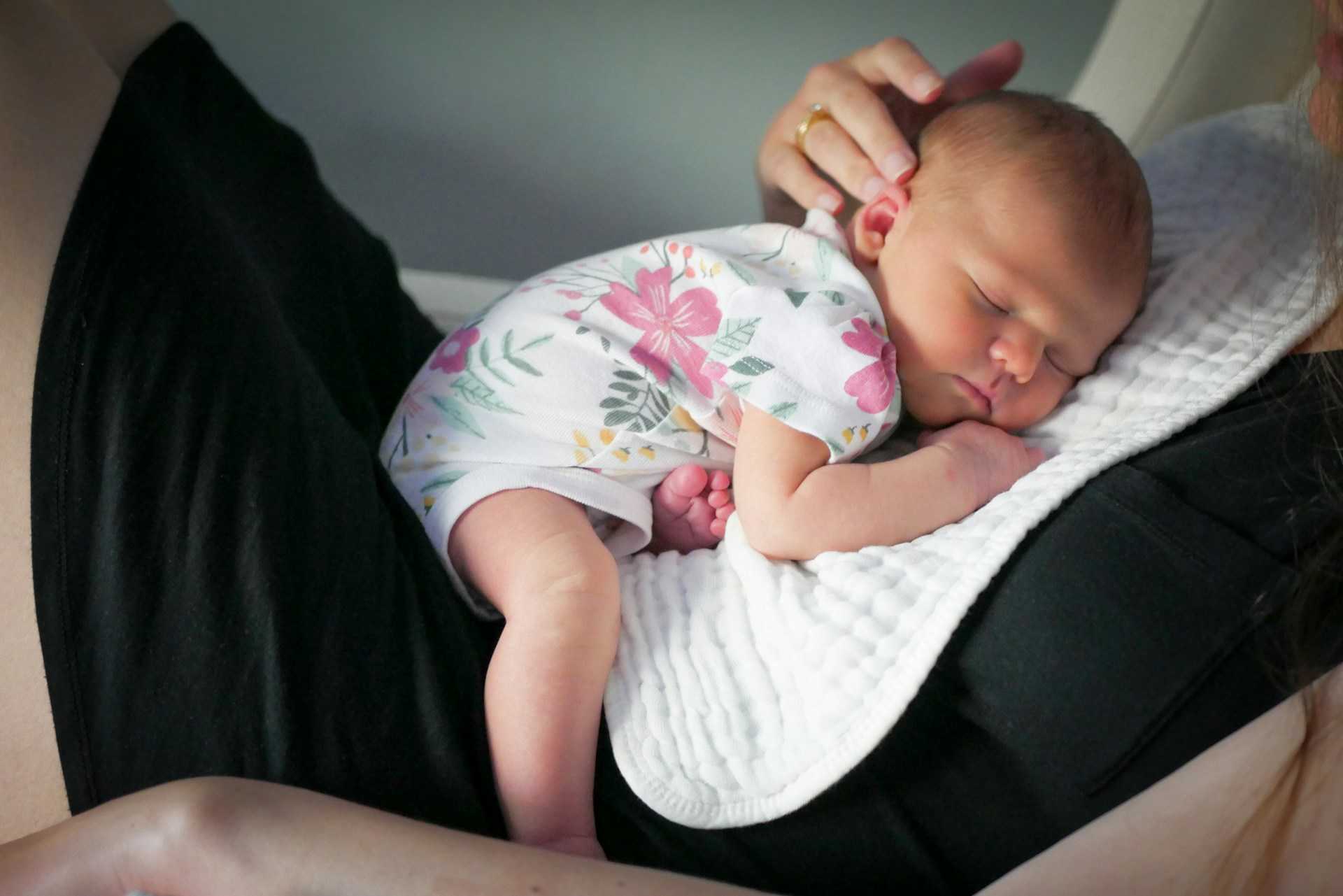Newborn Sleep: Complete FAQ Guide for Parents

Getting a newborn to sleep well is one of the biggest challenges for new parents. Babies have very different sleep patterns from adults, and it’s normal for them to wake frequently. Still, many moms and dads ask: How can I improve newborn sleep? What’s the best newborn sleep schedule?
This guide answers the most common questions parents ask about newborn sleep, with practical tips and safe recommendations.
1. How many hours should a newborn sleep?
Newborns typically sleep 14–17 hours in a 24-hour period. Their sleep is broken into short stretches (2–4 hours) because they need to feed often. Don’t worry if your baby doesn’t follow this exactly—some babies may sleep slightly more or less depending on their needs.
2. Why do newborns wake up so often at night?
Unlike adults, newborns have shorter sleep cycles and spend more time in light sleep. Their small stomachs also mean they need to feed frequently. This combination makes nighttime waking completely normal in the first few months.
3. What does a typical newborn sleep cycle look like?
A newborn sleep cycle lasts about 40–60 minutes and includes:
- Active sleep (light sleep): baby may move, twitch, grunt, or make noises.
- Quiet sleep (deep sleep): baby is still and breathing regularly.
- Waking for feeding before starting another cycle.
4. How can I create a safe sleep environment for my baby?
Safe sleep reduces risks and helps babies rest better. Follow the “ABC rule”:
- Alone: baby sleeps in their own crib or bassinet.
- Back: always place baby on their back.
- Crib: use a firm mattress with a fitted sheet, free from blankets, pillows, toys, or bumpers.
Keep the room at a comfortable temperature (68–72°F / 20–22°C). Swaddling or a sleep sack can provide comfort without loose blankets.
5. How can I tell if my baby is tired?
Watch for early sleep cues such as:
- Yawning
- Rubbing eyes
- Staring into space
- Fussiness or whining
Putting your baby down when they show these signs—before they become overtired—makes falling asleep much easier.
6. What is the best bedtime routine for a newborn?
While strict sleep training methods aren’t recommended for very young babies, a simple, calming routine can work wonders:
- Warm bath or gentle wipe-down
- Feeding and burping
- Soft lullaby or story
- Dim lights and quiet environment
Repeating this nightly signals to your baby that it’s time for longer nighttime sleep.
7. How can I get my newborn to sleep longer at night?
Parents often wonder how to get newborns to sleep longer. You can try:
- Offering full feedings during the day
- Keeping daytime bright and active, nighttime quiet and dark
- Using white noise to mimic the womb environment
- Avoiding overstimulation before bedtime
Keep in mind: in the early weeks, frequent waking is unavoidable, but babies gradually start stretching their nighttime sleep.
8. My baby won’t nap during the day—what should I do?
Daytime naps are important. To help:
- Watch for tired signs early
- Use a consistent nap routine (feed, burp, swaddle, dim lights)
- Avoid letting baby get overtired—this makes naps harder
Short naps are common for newborns, but with time, naps usually lengthen.
9. Should I wake my newborn to feed?
Yes, in the first 2–3 weeks—or if your doctor recommends it due to weight concerns. Once your baby is gaining weight steadily, you can usually let them sleep and wake naturally for feedings.
10. When will my baby start sleeping through the night?
Most babies begin sleeping longer stretches—5–6 hours—around 3–4 months old. By 6 months, many are capable of sleeping 6–8 hours at night. However, every baby is different, and some may take longer.
11. When can I start sleep training?
Formal newborn sleep training methods are not recommended before 4–6 months. Before that, focus on:
- Consistent bedtime routines
- Practicing “drowsy but awake”
- Creating a safe and soothing sleep environment
At 4–6 months, if your baby still struggles, gentle sleep training can be considered.
12. Is it normal for newborns to make noises or move while sleeping?
Absolutely! Babies often grunt, twitch, or even smile in their sleep because they spend so much time in active sleep. This is normal and doesn’t mean they’re uncomfortable.
13. What if my baby has reflux or gas and can’t sleep?
Gas or reflux can disrupt sleep. Try:
- Feeding in an upright position
- Burping frequently
- Keeping baby upright for 20–30 minutes after feeding
- If reflux seems severe, consult your pediatrician.
14. How can I help my baby learn the difference between day and night?
Newborns are not born with a sense of day and night. To teach them:
- Expose them to natural light during the day
- Keep daytime active with noise and interaction
- At night, keep the environment dark and quiet with minimal stimulation
This helps set their internal clock.
15. What can parents do to cope with newborn sleep deprivation?
Taking care of yourself matters too. Tips for parents:
- Sleep when the baby sleeps
- Share nighttime duties with a partner if possible
- Accept help from family or friends
- Don’t aim for perfection—progress is enough
Your well-being is just as important as your baby’s sleep.
16. Is it safe to co-sleep with my newborn?
Most pediatricians recommend against bed-sharing because it increases risks. However, room-sharing—keeping your baby’s crib or bassinet in your room—is encouraged for at least the first 6 months. This allows you to monitor your baby closely while keeping them safe in their own sleep space.
17. Do newborns need complete silence to sleep?
Not at all. In fact, many newborns sleep better with background noise since it reminds them of the womb. A white noise machine, gentle fan, or soft lullaby can be helpful.
18. When will newborn sleep get easier?
For most families, sleep begins to improve around 3–4 months, when babies can sleep longer stretches at night. By 6 months, many babies fall into more predictable patterns. Remember—every baby is different, but sleep does get easier with time.
Newborn sleep can feel overwhelming, but it’s important to remember: frequent waking and short naps are normal in the early weeks. With a safe environment, gentle routines, and patience, your baby will gradually settle into longer, healthier sleep.
Parents should take comfort knowing that sleepless nights don’t last forever—every stage is temporary, and each small improvement is a big step forward.
We as the developers of the Erby app disclaim any liability for any decisions you make based on this information, which is provided for general informational purposes only and is not a substitute for personal medical advice.


